new posts in all blogs
Viewing: Blog Posts Tagged with: Michael, Most Recent at Top [Help]
Results 26 - 50 of 75
How to use this Page
You are viewing the most recent posts tagged with the words: Michael in the JacketFlap blog reader. What is a tag? Think of a tag as a keyword or category label. Tags can both help you find posts on JacketFlap.com as well as provide an easy way for you to "remember" and classify posts for later recall. Try adding a tag yourself by clicking "Add a tag" below a post's header. Scroll down through the list of Recent Posts in the left column and click on a post title that sounds interesting. You can view all posts from a specific blog by clicking the Blog name in the right column, or you can click a 'More Posts from this Blog' link in any individual post.
by Michael
I don't know about you, but I have a hard time keeping track of all the books I've read. I'm pretty sure I'll never again be able to recall everything I read in high school and college, and as I read more and more submissions, books just slip from my brain.
We do a book club here at work, and I'm often surprised when I read the coverage I did—I'd say I forget about a good third of the books.
But now there's an app to help me remember!
The BookLover app lets you keep track of the books you've read, what you're currently reading, and what you want to read. It's really simple, but seems pretty helpful. If anything is keeping me from buying the app, it's that "currently reading" section. I'm afraid every book I start but don't finish will live there forever, quickly eclipsing the books I've finished!
Do you need help remembering the books you need to read? Or are you all elephants?
by Michael
It's BEA week, and I'm in New York, in a hotel, exhausted by my day of standing around. But my mind keeps drifting back to Sunday and the finale of LOST. As I said to friends, I laughed, I cried, and I was completely caught up in the moment. I will miss the show, flaws and all.
What's this got to do with books, you ask? LOST had many literary allusions throughout the show, and
this LA Times blog post goes through a bunch of them. Interestingly, the producers and I like many of the same books. Are any of the LOST books on your favorites list?
by Michael
I really feel for authors. Partly because it’s my job, but also because I work with them closely and know how hard the business can be.
I wrote a bit about rejection the other day, that being rejection from editors, agents and other “gatekeepers.” But then there’s rejection from the buying public. Sometimes books just don’t sell—the book doesn’t find its intended audience. Worse, sometime people buy the book and then explain to the world, via blog, or tweet or Amazon review, why they hate it. Those reviews sting. But I think there’s something that has to be even tougher: when readers reject your work, without having read it, because of a decision made by the publisher—in fact, they may boycott the book to make a point. But
as John Scalzi smartly points out on his blog, the one getting punished isn’t the publisher, but the author.
There have been a couple of major brouhahas that caused readers to consider boycotting books from certain publishers. Earlier this year, there were
calls for a boycott of Bloomsbury books over their perceived whitewashing of covers, and there’s
quite the Amazon backlash to titles not available in the Kindle format. As Scalzi rightly points out, when one boycotts a publisher, authors are hurt, not the publisher. The author benefits more from one book sale than the publisher suffers from a lost one, as the publisher has an entire list (and probably several other imprints, or even other businesses) from which to make money, while the author has just the one book.
Now, I know what you’re thinking—authors don’t have to be published by any one publisher (I’ll ignore that it’s often the case that only one publisher is willing to publish the book), so they have some say in the situation. But in the two examples above, the controversies didn’t exist when the author signed the contract, and in both cases, the authors had no control over the perceived malfeasance. Authors have control over so little in the publishing process, that singling any one book or author out just doesn’t make much sense.
Maybe you all disagree, and I’m open to hear your thoughts. I just hope people will think twice about who’s getting hurt.
by Michael
It seems that Amazon finally caught on to the fact that the top 10 books on the Kindle Bestseller list were all free books—they’re now creating two lists, one for paid books, and one for free books.
As the LA Times Jacket Copy blog notes, at the very least, the “bestseller” label won’t be a misnomer any longer.
This is also as it should be. Comparing the downloads of free books to the download of paid books never made much sense—the whole point of making the book free is to entice people who aren’t willing to pay for the work in the first place. Without payment, it’s not a sale, it’s a gift. Including both paid and free books on the list is comparing apples to oranges, and I’m glad they’re making the distinction—as Apple does in their App and iBook stores. With more than half the books on the Kindle Bestseller list being free, it’s going to be interesting to see which books now appear in the paid list.
With more information about the paid books, I’m curious to see how pricing affects sales. We know that free books are frequently downloaded, but is there a big different between $12.99 and $9.99? Or $9.99 and $4.99? A quick look at the iBookstore bestsellers shows only 7 books under $9.99 in the top 50, and those books are not new and priced to move, but rather backlist titles available in mass market formats. But the titles in the iBookstore are much more limited, so it’s hard to really draw conclusions.
So what do you think? Was it a good idea to divide the lists? Or did lumping free and paid ebooks onto the same list tell us something important?
by Michael
Depending on your feelings about the Apple iBookstore and iPad, this may or may not come as a surprise. According to
a report on Publisher’s Marketplace (subscription required), ebook sales through the iBookstore have been robust, comprising “12 to 15 percent of all ebook sales.” This makes the iBookstore the #2 ebook retailer only a month after opening, and with Random House still holding out. (And, if you ask me, a terrible, terrible user interface in the iBookstore—it’s a wonder you can find anything.) As the report notes,
with income lower on a per-book basis under the agency model, ebook sales need to increase 20 – 30 percent in order to make up the difference. It looks like that may just be happening.
The report also notes: “At least two publishers were certain that iBook sales so far have been incremental, growing the overall ebook market rather than taking share from other accounts.” This is even better news, as there was worry that ebook sales would just shift from one store to the other. Growth is good — especially with
the news of declines in print book sales.
Publishers have to be thrilled with this news, as moving to the agency model was definitely a short-term gamble. They sacrificed the money they were making from Amazon off loss-leaders for the chance to open the market to another major player. And it looks as though that might be paying off. That said, it’s only a month out, and it remains to be seen if people will continue to purchase their books through the iBookstore.
So does anyone else have an iPad? Anyone buying books with it? So far, I’ve read
Lowboy on it, along with many, many submissions, and while I hate the iBookstore, I love the reading experience. How about you?
*For the record, I know this isn’t the correct Sally Field quote, but it’s how most people remember it!
by Michael
A recent post over at
MobileRead led me to
this amazing graphic about how books are made--not the editorial stuff, but rather how a physical book is taken from digital file to printed copies. It’s quite educational, and very, very geeky. When I shared the link with Lauren, her reaction was the same as mine: it looks like
a Richard Scarry book! And like Mr. Scarry’s
A Day at the Airport would keep me occupied for hours, I have a feeling I’ll be spending a lot of time with this!
by Michael
I think we all probably suffer from information overload, and I know that those of us who work in publishing are often even more inundated. At this point, I’ve stopped adding to my RSS reader, and I’m actually taking off all the things I never get around to reading. And, though I love technology and all it affords us, I’m generally trying to pare down. So I was fascinated by
this Ars Technica article I found this week. To sum up, Oxford University Press has created a scholarly, peer-reviewed search engine that allows users to find worthwhile articles on specific subjects. Now, instead of wading through pages and pages of Google results to find out what to read on, say, Menander of Athens, you can find out what the authorities think you need to know. And with the curators of each section listed, you can decide for yourself if they’re expert enough to trust.
And while that’s publishing-related enough to mention, it brought to mind some of the ongoing discussion about the future of trade publishing. There’s been talk lately that publishers are on the way out, as authors can now just publish directly through several ebook and POD options. But with
statistics like the most recent ones from Bowker stating that over 1,000,000 titles were published last year, I believe publishers and editors become all the more necessary. No one has time to find what they want out of a million titles, so readers will expect someone to help direct them and narrow their choices. That job is going to fall to publishers, their imprints and their editors, all of whose names will be more important in the future as readers will expect that each name means something. It’s not just the amazing editorial, design, publicity and marketing that publishers bring to the table; it’s also the simple act of separating the wheat from the chaff. In a world of information overload, it’s hard to put a price on that service.
But am I just being a publishing Pollyanna? I’d love to hear your thoughts on the matter.
by Michael
Back in 1998, super-librarian Nancy Pearl launched “If All of Seattle Read the Same Book,” the first city-wide book club. The success of that program led cities all across the country to get together and read collectively. (Our own Lorene Cary’s
The Price of a Child was selected as the inaugural One Book, One Philadelphia pick in 2003.) The NEA has their own version of the program, called
The Big Read, which has a list of books that communities can choose from, each with related guides and ancillary materials.
Now comes One Book, One Twitter from
Wired writer Jeff Howe, in which Twitter users help select a title by April 27, then will read and discuss the book via Twitter. I’m curious to see how this experiment turns out. With the One City programs, there were ways for small groups of people to get together to discuss the book. I wonder how much listening will actually be done in this case. But there’s only one way to find out!
The only book on the list I haven’t read is
American Gods, so I’ve voted for that. Anyone else care to join?
by Michael
Well, I’m not sure they’ve actually got “skillz,” but they’re proving that they know how to have fun and don’t take themselves too seriously. In
this video, the staff at Peguin rap, sing and dance a parody of Jay-Z’s “Empire State of Mind.” While I don’t think they’ll be winning any Grammys, and I hope they’re keeping their day jobs, it’s an amusing publishing video! Enjoy.

By: DGLM,
on 3/30/2010
Blog:
Dystel & Goderich Literary Management
(
Login to Add to MyJacketFlap)
JacketFlap tags:
opinion,
e-books,
Apple,
Amazon,
publishers,
distribution,
Michael,
future of publishing,
price wars,
Add a tag
by Michael
April 3 is right around the corner! For those of you who don’t pay attention to, well, any form of media, that’s the day that Apple’s iPad finally hits the stores. And, being the nerd that I am, I have to say I’m pretty excited. I love product launches, and Apple does them like no other. (I was very disappointed by the lack of excitement surrounding the launch of the Palm Pre when I went to purchase it on day one last year, but I digress.) I think our readers know how this relates to books, but in case you don’t,
Apple is launching their iBookstore that day, as well. They’ll be offering books from all the major publishers, with one huge exception: Random House. When Steve Jobs announced the iPad back in January, he said that 5 of the 6 biggest publishers were onboard for the iBookstore. The absence of Random House was conspicuous, but they
released a statement afterwards saying that they were working on an agreement with Apple. I’d assumed there’d be one in place by this point, but it looks like the iBookstore could very well launch without the largest trade publisher on board,
as reported by the Financial Times. Honestly, I was really surprised. Until last week.
That’s when
this article popped up on an iPhone fansite. It purported to show the working iBookstore, along with the prices. And the price for 27 of the 32 listed bestsellers that day? $9.99. The same price that publishers have been fighting against in the Kindle bookstore. I was thrown for a loop. The reasoning behind the to switch to the agency model was to take control of pricing and get rid of the expectation that ebooks cost $9.99. But here we were at that price again. Then, only two days later,
a new screenshot showing most (but not all) of the bestsellers at $12.99. Color me confused. This pricing kerfuffle brought to mind
this New York Times piece about publisher agreements with Apple. The piece suggests that Apple wanted the flexibility to drop prices for hot books that would be majorly discounted in print. As of today, it’s not at all clear what iBookstore pricing will be on April 3.
Thinking about the possibility of an ebook sold at $9.99 is troubling. In the agency model, retailers act as an “agent,” selling books at prices determined by publishers and collecting a percentage of each sale (30% in most cases). Authors are generally being offered a percentage of the net income from these sales—publishers are pushing for this to be 25%, so we’ll roll with that number for the purposes of this argument. In the agency model, with a book priced at $9.99, authors will earn $2.50 per book or less. Compared to the $3.75 they currently earn on a $25 hardcover (15% of list price), this is a dramatic reduction. Comparing this amount to what authors would earn under the current ebook market conditions is nearly as depressing. In the current sales scheme (the consignment model), a retailer is buying the book for about a 50% discount, then selling it at whatever price they like. Assuming the same $25 price list price for the ebook (which is pretty standard) and same 25% royalty for electronic books, the author receives a royalty of $3.13. (The question of why they would receive less than they do on the hardcover in this situation could be a blog post in itself.) If ebooks eventually make up 50% of the market (a number I believe is possible), that royalty arrangement will radically alter author compensation. That, obviously, concerns me. I’d really
Ever since 5th grade I have been nuts about William Shakespeare. My teacher, Mrs. Paulson, brought in a readers’ theater version of Macbeth. The story had everything a 10-year old boy could ask for – ghosts, curses, flying daggers, walking trees, swordplay and blood! Our class was transfixed when Mrs. Paulson read Lady Macbeth’s sleepwalking speech: “Out damned spot! Who would have thought the old man had so much blood in him?” The language was a revelation. This Shakespeare guy knew every word in the dictionary, and used them all.
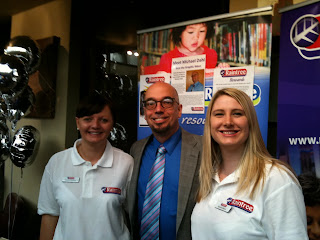 Last week, I had the chance to speak at a conference on literacy held in Stratford-Upon-Avon. It was a dream come true. I spoke to a group of librarians and head teachers (they’d be called principals in the US), about the benefits of graphic novels for younger readers. In Shakespeare’s hometown! I also had the chance to work with some great people, including Joanne Thornhill and Gemma Mason from the Heinemann Raintree office in Oxford just down the road.
Last week, I had the chance to speak at a conference on literacy held in Stratford-Upon-Avon. It was a dream come true. I spoke to a group of librarians and head teachers (they’d be called principals in the US), about the benefits of graphic novels for younger readers. In Shakespeare’s hometown! I also had the chance to work with some great people, including Joanne Thornhill and Gemma Mason from the Heinemann Raintree office in Oxford just down the road.
It was a busy couple of days. I spoke with dozens of teachers who face the same challenges in the UK that confront educators here in the US – falling test scores, rising illiteracy, a growing apathy toward the written word. Two powerful weapons in their arsenal, however, are high-interest books and graphic novels. That was cheering news to me, since it’s part of the Stone Arch mission to create more such books.
I could not leave Stratford without paying my respects to the man whose work has meant so much to me as a reader and an author. A short walk led from the hotel to Holy Trinity Church where Shakespeare, his wife, and his children are buried just beneath the altar. I feel sheepish saying it was an “altering” experience, but I think Shakespeare would have appreciated the pun.

by Michael
So Lauren isn’t the only one who can
blog about the Irish! One of the publishing folk I follow on Twitter is
Eoin Purcell, a publishing analyst and editor of
Irish Publishing News. Over on his
Green Lamp Media blog, he’s currently running a feature about “Things Publishers Fear.” So far the list is
Amazon,
Google,
Apple and
Price. I don’t agree with everything he says, but for those interested in the future of the business, the series is worth checking out.
Michael Paulus is currently offering more affordable versions of a select few of his popular cartoon skeletal systems in an entirely different format. Taken from his original 'flip-top' interactive pieces with the cartoon characters as an overlay; these are solely the skeletal elements but re-drawn, notably larger, and more detailed than the originals
Micheal's skeletal drawings have been used as reference material from grade school classrooms to grad school PowerPoint lectures in medicine and forensics, and have been featured in publications such as Discover, Cabinet, and Pig magazines, Virgin Atlantic's Carlos, and various other international newspapers and magazines.
Amazingly, these drawings match seamlessly to the cartoon characters they are based on.
by Michael
One of my favorite websites, Gizmodo, has
a great piece up about e-book interoperability. As they point out, what Steve Jobs meant when he said “open” isn’t exactly what you and I might think of as open. The short story is that iBooks books will only work on the iPad (and I’m guessing the iPhone and Macs, at least eventually), just as Kindle books only work on the Kindle. That certainly isn’t my idea of open. And it’s not great for publishing, either, when people can’t take the books they think they’ve bought with them. It’s not the expectation, and I fear it encourages piracy. What do you think?

By: LaurenA,
on 3/9/2010
Blog:
OUPblog
(
Login to Add to MyJacketFlap)
JacketFlap tags:
Oscars,
Song,
Zimmer,
Original,
Hans,
Michael,
WNYC,
category,
Score,
Soundcheck,
Alexandre,
Desplat,
Giacchino,
Add a tag
Lauren, Publicity Assistant
Kathryn Kalinak is Professor of English and Film Studies at Rhode Island College. Below, she reflects on Sunday’s Oscar (Original  Score) presentation, and her own predictions from Friday, presented both here on OUPBlog, and on WNYC’s Soundcheck.
Score) presentation, and her own predictions from Friday, presented both here on OUPBlog, and on WNYC’s Soundcheck.
And congratulations to Joseph Brown! In last week’s contest, he correctly predicted both Oscar Music category winners. Joseph will be receiving a copy of Kathryn’s most recent book, Film Music: A Very Short Introduction.
If there was a surprise in the Original Score Oscar race Sunday, it was only the break dancing performances accompanying selections from the five nominated scores. Compared to the other presentations, the break dancing seemed to me a shameless grab for a youthful demographic. The Writing nominees, for instance, were announced with images of screenplays projected over corresponding scenes—an effective reminder of what a film owes to its writing. Yet the Academy could not come up with a better way to honor this year’s fine slate of scores? To have watched a scene from Sherlock Holmes without Hans Zimmer’s eclectic instrumentation, and then to have watched it with all the tension and excitement lent by the score would have surely been a more appropriate way to showcase the importance of music in film.
The composers of this year’s Original Scores are all deserving, hard-working, and extremely talented. Although I predicted Michael Giacchino would receive an Oscar for his work on Up—as he did—this is one year I wouldn’t have minded being wrong.
Though I appreciate Giacchino’s beautifully melodic score, Alexandre Desplat is due! For Fantastic Mr. Fox he used instruments like a mandolin, ukulele, celeste, banjo, and a Jew’s harp to create a whimsical and inventive sound—the perfect match for such a quirky stop-action animated film. With six film scores in 2009, four in 2008, and six in 2007, Desplat might be Hollywood’s hardest working composer. He’s already scored a film currently in theaters (The Ghost Writer), and five more are in post-production, including the newest Harry Potter film. Given Desplat’s incredible productivity, we shouldn’t have to wait long for another nomination, or (hopefully) a win.

By: LaurenA,
on 3/5/2010
Blog:
OUPblog
(
Login to Add to MyJacketFlap)
JacketFlap tags:
Alexandre Desplat,
Buck Sanders,
hans Zimmer,
James Horner,
Kathryn Kalinak,
Marco Beltrami,
Michael Giacchino,
Original Score,
Original Song,
Kalinak,
Fantastic,
Mr,
Score,
Soundcheck,
Horner,
Alexandre,
Desplat,
Marco,
Beltrami,
Buck,
Sanders,
Giacchino,
Music,
Film,
The,
Avatar,
Current Events,
oscars,
A-Featured,
Media,
sherlock holmes,
Song,
Up,
Fox,
Holmes,
Oscar,
Zimmer,
VSI,
Locker,
Hurt,
James,
Original,
nomination,
The Hurt Locker,
hans,
Kathryn,
Michael,
nominees,
WNYC,
Sherlock,
category,
Fantastic Mr. Fox,
Add a tag
Lauren, Publicity Assistant
Kathryn Kalinak is Professor of English and Film Studies at Rhode Island College. Her extensive writing on film music includes numerous articles and several books, the most recent of which is Film Music: A Very Short Introduction. Below, she has made predictions for the Oscar Music (Original Score) category, and  picked her favorites.
picked her favorites.
We want to know your thoughts as well! Who do you think will win the Oscar for Original Score? Original Song? Send your predictions to [email protected] by tomorrow, March 6, with the subject line “Oscars” and we’ll send a free copy of Film Music: A Very Short Introduction to the first 5 people who guessed correctly.
We also welcome you to tune in to WNYC at 2pm ET today to hear Kathryn discuss Oscar-nominated music on Soundcheck.
This Sunday’s Oscars will recognize an exceptionally fine slate of film scores, and it’s nice to see such a deserving group of composers. The nominees represent a range of films and scores including the lush and symphonic (Avatar), whimsical (Fantastic Mr. Fox), edgy and tension-producing (The Hurt Locker), eclectic and genre-bending (Sherlock Holmes), and beautifully melodic (Up). While there are always surprises, I’ve considered each composer and score, coming to the following conclusions and predictions.
On Avatar:
James Horner has been around a long time, having been nominated ten times in the last 32 years, and receiving Best Score and Best Song Oscars for Titanic. He’s a pro at what he does best: big, symphonic scores that hearken back to the classical Hollywood studio years. Horner’s music gives Avatar exactly what it needs—warmth and emotional resonance—and connects the audience to a series of images and characters that might be difficult to relate to otherwise. If Horner wins Sunday night, look for the evening to go Avatar’s way.
On Fantastic Mr. Fox
by Michael
(For details on Slush Week, see
Chasya's introduction.)
We'll start with the query on its own, then the response after the jump:Dear (Agent's name):An imprisoned poet. A mysterious orb. And one mega-dose of snotty older sister, named Athena.Twelve-year-old Jared Ahern’s got all three on his plate. (And that’s not counting the orb’s vicious inventor, trapped in a time sump.) Jared desperately wants to pry himself out from under Athena’s shadow and get some adulation of his own. When the orb, with its power for time travel and shape-shifting, summons him and Athena to rescue Shakespeare from the Tower of London, Jared leaps at the chance to show his mettle. Jared’s quick-thinking springs Shakespeare from his cell. But things go awry when Shakespeare returns with Jared to Oregon, leaving Athena stranded in the sixteenth century in the guise of Good Queen Bess. Worse yet, Jared’s sixth-grade enemy steals the orb. Now Jared must use both his skateboard and his love of “Star Wars” to retrieve the orb and rescue Athena, before she becomes the Queen of England. Permanently.Shakespeare on the Lam is a middle-grade adventure, complete at 28,000 words.I follow the blog on your agency's website and see that you are looking for adventure middle-grade for boys, so I believe it might be a good fit for your list. I am enclosing a sample chapter, as stated in your submission guidelines. I’m also querying other agents.I am a member of SCBWI and Willamette Writers. My short story, “Carlito’s Question,” won 3rd prize in the 2009 Kay Snow Awards competition, sponsored by Willamette Writers. Shakespeare on the Lam is my first novel.Thank you for your time.Sincerely,(Author's name)Dear (Agent's name):An imprisoned poet. A mysterious orb. And one mega-dose of snotty older sister, named Athena.One of the issues I see most often with queries is when they try to be flap copy. This pitch is a little too cute for my tastes. I’d combine the above with the first sentence of the next paragraph, which will get us to the point sooner.Twelve-year-old Jared Ahern’s got all three on his plate. (And that’s not counting the orb’s vicious inventor, trapped in a time sump.) (I get worried when I see parentheticals in query letters. With how little room you have in a one-page query, the information is either important or not. If it’s important, take it out of the parentheses, if it’s not, delete it entirely.) Jared desperately wants to pry himself out from under Athena’s shadow and get some adulation of his own. (After hearing that Athena was a snotty older sister, I was surprised to hear that she’s so well-liked.)
8 Comments on Michael's Slush Week entry, last added: 3/5/2010
The atmospheric quality of
Michael Orwick's paintings are so captivating you feel as though you can step right into his canvases.
In a traditional
Impressionistic style Michael skillfully captures the complexities of light and shadow, creating scenes that are inviting, peaceful and serene.
Michael Orwick's paintings bundle you like a protective blanket. It's as if he's holding out his hand to lead his viewers into a world of warmth and beauty.
In his painting above,
A Far Off Singing (The Walk Home), you feel the urge to run across the beautifully rendered stone bridge, where light and shadow dance so gracefully, to meet up with the woman with the orange umbrella on the other side. How wonderful it would be to continue the journey singing alongside her in the countryside Michael has created. He's inviting you to do this. It's absolutely incredible how his paintings draw you in with the beginning of a story welcoming you to play out the rest.
by Michael
It probably comes as no surprise to hear that I’m a bit of a gadget nerd, especially when it comes to mobile tech. It’s bad enough that I should probably go to early-adopters-anonymous. I was in line for the iPhone 3G and would have been for the original but I was on a trip to Italy. And despite its shortcomings, I’m pretty jazzed about the iPad.
I also used to be a big magazine reader—huge. I think I’ve subscribed to just about everything at one point or another: from my
Nintendo Power days as a kid, through my
Entertainment Weekly,
Rolling Stone, and
Movieline period, through the
New Yorker and
Wired more recently. I do still get
Wired, but for someone who used to subscribe to 5 or 6 magazines at once, my consumption has definitely gravitated online.
So I was pretty excited when
I saw this video, which combines the shininess of mobile tech with the glossiness of magazines. With active content and ads, and with fantastic design and layouts, I could see myself sitting with this for extended periods of time. And I wouldn’t mind paying a fee for it, either. When the content is interesting and delivered beautifully, I’m happy to pay.
This got me thinking about books, of course, and how this kind of approach might affect them. I’d love to see this kind of format used for a new sort of
Choose Your Own Adventure, with clickable links that take you to different strands of the story. Or it could even be used for something nonlinear, a more experimental approach to story. There could be wacky children’s books, where turning the page requires some task--finding Waldo, maybe? How-to books could include video or short animations. I think the possibilities are pretty darn exciting.
by Michael
I’ve been waiting for the chance to sing the praises of one of my must-read blogs,
The Book Publicity Blog, and I found yesterday’s post really helpful. Yen
discusses the pros and cons of Facebook profiles and fan pages, helping authors (and publicists) figure out which is more beneficial, as well as pointing out that it really needs to be the author behind the profile—not a publicist or assistant. Though as she points out, the publisher can certainly help in some ways!
And if you want to learn more about book publicity, I suggest reading as much of the blog as you can. In a world where authors have to act as their own publicists in so many ways, I think this site should be on every author’s blogroll.
by Michael
Nothing causes author duress like the unveiling of the book cover. In my experience, it’s one of the most stressful parts of the publishing process, and there are days when I wish we could go back to the days of unjacketed books, when the only thing to get fired up about would be the font type! I’m sure Bloomsbury Children’s Books is wishing the same thing right about now.
This past summer, Bloomsbury had
a big controversy on their hands when people noticed that the cover model for the book
Liar by Justine Larbalestier didn’t exactly match the description of Micah, the protagonist in the book. At first, Bloomsbury tried to explain away the decision, saying that this was somehow a reflection of the character’s compulsive lying. They eventually relented, and a new jacket was prepared in time for publication. Though there was some residual blogger anger, things simmered down.
Until Bloomsbury did the same thing again. This time
with Jaclyn Dalmore’s Magic Under Glass (a great book, by the way). This time, there were no liars to blame. While the book describes the protagonist, Nimira, as “dark-skinned,” the cover depicts a fair-skinned, corseted girl. While people were upset about
Liar, the reaction to this cover was scathing. Jezebel’s (linked above) headline read “The White-Washing of Young Adult Fiction Continues.”
Some bloggers went so far as to call for a boycott of Bloomsbury, though they realized they’d be hurting the authors as much, if not more, than the publishing company. And there’s much more to read on the subject at
Reading in Color,
Bookshelves of Doom, and
Chasing Ray, as well as many others (you could spend all day linking between the blogs—and I hope you do).
So why do I bring this up? I think it’s important that we’re all paying attention to the issues involved here, and by linking to these other smart people and their opinions, I hope to generate more good, healthy discussion. As Justine Larbalestier
pointed out when the controversy erupted around her book, the reason this happens is that booksellers believe that books with people of color on the cover don’t sell. Yikes. I really don’t think that’s true, despite what people tell me. The publishing industry has neglected people of color in the past, claiming there was no audience for books by and for people of color. Can you imagine? They learned their lesson when authors started self-publishing and selling hundreds of thousands of copies of the books that the publishers turned down. And now those same authors do big business with New York publishers, making them millions.
I hope some progressive, enterprising publishers start to prove these booksellers wrong by designing covers that prominently feature people of color. And when one breaks out and becomes a huge bestseller, maybe we can stop being so cynical. I’m curious to hear your thoughts on this, and as always, let’s keep the conversation respectful and positive.
by Michael
Lauren pointed me to
this excellent post about dos and don’ts for publicists from blogger Lindsay Robertson. The don’ts should be obvious, but sadly, it seems that they aren’t. What I found more interesting, and possibly surprising, were the dos. The rule that really caught my attention was “Pick Eight Blogs.” She suggests that publicists pick eight blogs to publicize to. Yep, just eight. By targeting the most appropriate outlets and building relationships with them, the contention is that coverage will be both better and wider. But how is that possible if you’re only pitching eight blogs? Because the bigger internet sites scan the smaller sites to find their content. And by not throwing things at everyone in sight, you can get higher-quality coverage that people actually pay attention to. Very savvy, very practical, and much more fulfilling for the publicist, I think.
It strikes me that there are lessons here for authors. By being smart and focused about submissions, whether when looking for an agent or promoting one’s own work, authors increase the likelihood of a hit. In a world where it’s easy to communicate broadly, who doesn’t appreciate a tailored message? I know that I more carefully consider the queries that are specifically tailored to me. By doing the research and narrowing the list, an author with an attractive project is more likely to find an agent.
The same is true when author goes to promote her own book. By selecting a limited number of bloggers to approach and tailoring the pitch to each blogger’s interests, an author is more likely to get serious attention. It likely takes the same amount of time as blindly contacting hundreds of people, but the quality of the hits you get will certainly make up for anything lost in numbers.
I know this is something I’ll have in mind when talking to authors and book publicists in the future, and I’m sure this concept can be applied to other aspects of book publishing and beyond.
by Stacey
I think it's so interesting to
learn how people got to
where they are. I guess everyone has a story to tell. It might be a stretch, but I'll start at the beginning by saying that my agenting career, or at least the path there, began when I was a professional child actor starting back in the early 80s. I worked with an agent then and got to understand a bit about what they did, and I was also faced with an enormous amount of rejection! During college, I wasn't sure what I wanted to do, having spent so much of my childhood in front of the camera, so I studied film, and psychology. Upon graduation, I felt a little lost, like most post-grads do, and found a couple of internships in NY in film development, essentially looking for books to be adapted into movies. I eventually landed jobs at PolyGram Filmed Entertainment and Hearst Entertainment, where I scouted for books-to-film, and got to knows agents, editors, and the book biz in general. I realized pretty quickly that trying to pursue a career in film in New York was an almost insurmountable challenge. I knew it couldn't last because of how dispensable these New York film offices were, and so I planned to move to LA to infiltrate myself deeper into the world of film. With one foot practically out the door, I met my now-husband on a blind date and decided the west coast move was out, and I took a long look at what I wanted to do and realized that an agenting career, or at least a job at an agency, was the right direction for me to take.
When the opportunity to work with the esteemed Jane Dystel came up, my then-boss and mentor at Hearst recommended I jump on it. In February, 1999, a new and exciting chapter in my life began. I have to admit the first year or so was rocky, trying to learn my way around with no clients, lots of admin to handle (a highlight of which was hiring Jim and Michael, and I'm sticking to my story about Michael's blue hair!), and little understanding of what this side of the business was really all about. I remember hearing Jane and Miriam talk so fast about so many things in our morning meetings and wondered if I'd ever really get the language of book publishing. But I was intrigued and up to the challenge, and before long, Jane started passing projects my way. I eventually started coming up with my own book ideas, signed up my first client, and submitted my first project to editors. The moment when I got the call that an editor was "running numbers" on a proposal I'd submitted, I thought I was having a heart attack my heart was beating so fast. I was hooked. One project led to another, and before long, I was selling lots of books in all kinds of different categories. And I was loving every minute of it. I think that being an agent is a little like being a drug or a gambling addict (in a healthy way)--you are always on the prowl for that high you get from selling books, and you never know when that big hit is going to come your way. And of course, once you start, it's hard to stop.
Now almost eleven years later, I can say without pause that I am doing what I love, and feel rewarded in big and small ways with the work that I do. I am very grateful for the opportunities that Jane and Miriam have given me here over the years, and that they believed in me even when I didn't believe in myself. I feel truly lucky that I have found a career that is satisfying and fulfilling in ways I didn't think possible when my journey began so long ago. I have four kids at home now, and I love them enormously, but my extended publishing family of
by Michael
I figure it’s my turn to explain why it is I do what I do, as
Jane,
Jim,
Lauren,
Chasya, and
Rachel have—if only to satisfy the clients who keep asking when I’d do one of these!
It all started at the end of the last decade, December of 1999. It was my senior year, and I really needed a job. I had no idea what to do, and was thinking of finding something in retail, as I love a good discount. But my friend Jim McCarthy told me that the literary agency where he was interning was looking for another paid intern. Now, Jim had told me what he was doing, but frankly I never quite understood. These people were agents for authors? Why did authors need agents? And isn’t publishing for rich kids who want a hobby career? Though I didn’t think it was the job or industry for me, I figured it couldn’t hurt to go in and interview.
Like Jim, I was interviewed by Stacey Glick. If you talk to her, she’ll tell you that I had blue hair at the time. This is not true. I had bright, bleached-blond hair. The blue hair came later. (And the blue dye largely ran out of my hair when I had to make a delivery to one of our most important clients in the pouring rain that summer.) I believe she hired me on the spot, and I started working Friday of the same week.
I had no idea what I was doing in the beginning. I did what people requested, paid lots of attention, and started asking questions. Slowly, but surely, I came to be very interested and involved in what was going on at the agency. I’d loved books growing up, but I’d not been the same kind of reader in college. It was great to get back to reading things that were fresh, new and contemporary. And, as I looked around, I liked what I saw: a group of smart, creative, engaged, interesting people helping authors manage their careers. Just a few short months later, I was hooked—on publishing, agenting, and DGLM. When Jane and Miriam offered me a job in September of that year, I was honored, and I jumped at the chance.
When I started full-time, I was doing much of what I did as an intern, along with managing royalties and helping Jane with submissions. But quickly, I took on new responsibilities. I began assisting the rights director, learning the ins and outs of the foreign and domestic rights markets. When she left the agency a few years later, I took over the agency’s rights, eventually attending the London Book Fair with Jane and selling rights around the world. At the same time, I was building a list of my own, something Jane encouraged me to do within my first year at the agency. I started representing children’s books at Jane’s suggestion, something I was unsure of at the time(!). But quickly I found that I had a passion for middle grade and YA books, and my career as an agent really took off then. Several years ago now, I became a full agent, and the talented Lauren Abramo took over as our rights director, freeing me up to focus on my own projects.
Last year I was very excited to be promoted to vice president at the agency, and just as pleased this past December when I moved to Los Angeles to open a West Coast office for DGLM. I tell people all the time—I’d never have had these opportunities at any other agency or in any other job, and I’m forever grateful to Jane for that.
Our industry is going through big, drastic, challenging changes, and I’m glad that Jane, Miriam, the rest of the DGLM staff and I are working together to attack them head-on. My ten-year journey with the agency has been full of amazing experiences and opportunities, and I am just as enthusiastic about the ten



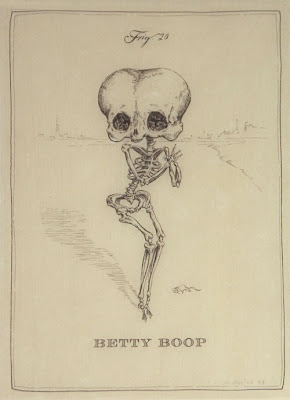
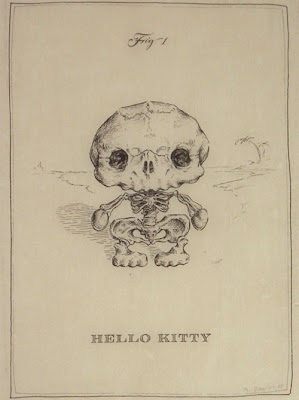


 Score) presentation, and her own predictions from Friday, presented
Score) presentation, and her own predictions from Friday, presented 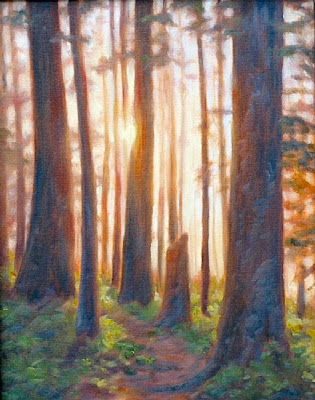

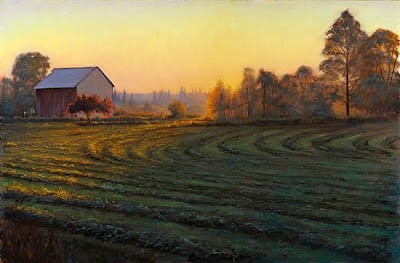
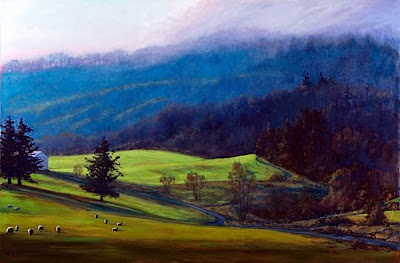

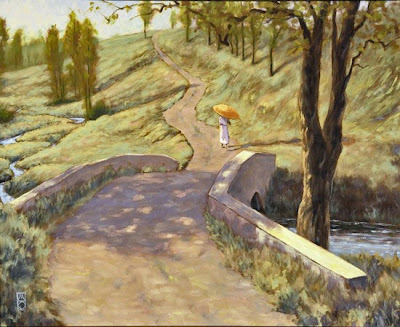
I keep stumbling across books on GoodReads that I haven't read in years, so I usually use that to keep track.
It also connects me with other people who've read it and their reviews. I'd be afraid of the "currently reading" tab, too, lol. If a book's not doing it for me, I won't always finish it.
Thanks for introducing me to this app. I'll have to check it out!
Yeah, I do have problems remembering if I've read a book or not. However, I keep a written list of books in series that I need to buy to fill it in and then I read in the correct order. When I finish a book I place it on my 'read' book shelves. Books I have not read are arranged on my 'to be read' bookshelf and arranged in series order and by author. My reading tastes can be eclectic so I browse the 'to be read' shelves and select whatever appeals to me at the time. Once read it goes on the 'read' shelf.
One of the last papers I wrote for college was to list all of the books I read, both for school or pleasure, and my impressions of those books. It was a very cool project and my professor said he really enjoyed my paper. But it was somewhat challenging remembering all of the books, poems, short stories (and plays, because I was also a Theater major) I read over those five years.
My book club uses Good Reads as a way to communicate about our club activities and I've started using it to keep track of what I've read. I was able to make a facebook tab that links to my Good Reads profile and I also have an iPhone app for it. Very handy!
I'm an elephant. My wife is a goldfish that has been a "parasite" to my memory. I am trying to make her get this app now because we own probably hundreds of books and I have to be the one to remember which ones she already owns.
I have a terrible time remembering what I've read -- I totally need this app. I used to list the books on my sidebar but stopped because now I find I want to be a little more private with what I'm reading (another reason I don't use Goodreads to keep track).
I always forget what I have read, especially series books if I haven't revisited them in a while. This year, my friend and I are doing a 100 books challenge and we blog about them. At least this way, I can just look back at my blog...for this year.
I'm sure i forget plenty of books but why would i need to remember them all? oh my god is there going to be a test?! :D
I don't have a problem remembering what I've books read. I do, however, forget what happens in the books I've read. Even though I can recall whether I've read something or not, I still think it's worthwhile to catalog them using an app.
Marissa
I am totally in love with Goodreads and use that site constantly, not only to keep track of what books I have on my shelves, but also to read other people's reviews of things I think I might like to read. I would otherwise absolutely lose track of interesting new books--just because I want to read so many of them. :)
(I'm annathepiper on Goodreads, anyone else there, please feel free to come find me!)
Weirdly, I just blogged about this site called Shelfari.
http://maxmunro.blogspot.com/2010/06/shelfari.html
You can add a list to your blog too, like they have here:
http://blog.shelfari.com/my_weblog/2009/09/index.html
GoodReads is the only way I can remember everything that I've read AND want to read. I love it. At first, I wasn't sure if I'd really use it. Let me tell you, though, I actually DO! All the time. Every time I hear of a book I want to read I'm clicking over to add it to my to-read list.
I'm fifty, so the brains getting fuzzy about more than just books I've read. Cool app though!
I have a hard time tracking just the books I own using Google Books, let alone the books I've read. I can't count the times someone has asked me if I've read a book, and I say, "Yeah, but it's been so long that I've forgotten everything about it." And these days, my to-be-read list is so long that I rarely have time to go back and reread books I loved!
I'm not sure my brain can go back over forty years...
I tend to remember arcane details about characters and basic plot lines, but forget the titles and authors' names. I've taken to writing them all down, along with my 'to read' and 'would definitely read this again' lists.
I use Library Thing for this because it makes it easy and I like seeing whose libraries are similar to mine. However, YES, everyone can see how few books I actually read in a year, and my "now reading" has a lot of dangling titles from eons ago...
Actually, when hearing of my mom's troubles with memory (specifically of the books she finishes in a day or two), I decided to create an Excel file listing all the books I've completed. I started this list in highschool and have maintained it, and even added books I suddenly remembered having read waaay back when. For someone without an iPhone or other app-ish device, it's quite useful.
Yeah, that's why I joined GoodReads. But I created two additional shelves in addition to "read" and "currently reading" - "maybe-later" and "put-back". The former is for books that I had to return to the library unread but am still interested in; the latter for ones I started and am not really interested in trying again.